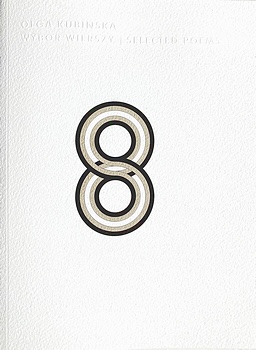Olga Kubińska
Introduction to Olga Kubińska: Wybór wierszy / Selected Poems, by Desmond Graham.
At this time of spectacular and tedious lying on the public and political stages, poetry and its truth-telling become all the more important. Yet in much of Britain it has become a profession, a career choice, a small business enterprise and a hobby. This is only the poets’ fault. Poetry remains where the use of language, the attempt to say something and the hope that others may hear, may be at its most acute. If poetry is easy with the truths of poetry, if words are seen as cheap common currency then where will the readiness to listen carefully, look closely, question and study the use of words, be nourished?
How good then, how encouraging, to come across poems which pick up and use words with a spirit of weighing and testing them. A poetry which brings in the daily matters of daily life but tests them for meaning, for their integrity – dare I say it – for their sincerity? In the poems of Olga Kubińska we have such a project. A project of looking askance, of coming from a different angle, from different angles. What really goes on round the dinner table of a family reunion? What is the end-product of visiting a gallery, or an ancient church? How does a work of art speak to us? How do objects look back at us – a shirt with the monogram VK at the cuff (Viktor Klemperer); the wayside shrine to a dead biker; a plan to re-enact the aerial bombardment of Warsaw (or, as I saw recently in London, a sign inviting you to ‘The Blitz Experience’!). Yes, it is still the Second World War but that war as part of a wider cultural memory used right now, bang up to date, by the very people who would most wish to silence the human context of that memory, the human meaning of war. A probing and powerful sequence of poems here, on ‘The History of the Polish Language 2016’, challenges decades of myths, nationalism and the appropriation of history.
In this selection from Olga Kubińska’s published volumes, identity, plurality, the ownership of history are all questioned and made at home in poetry: a poetry which voices the authentic, the first-hand, the specific and cherished in a world of thoughtless reproduction, which celebrates the well-made in ‘an IKEA of repeatable things’. Some poetry today is disposable – and consciously so, made to be so – these poems are made to make us pause, to linger and think, even to stick uncomfortably in our throat before we put them aside. For through their wit, their sharp awareness of absurdity, their tonal shifts and bold, original imagery they enable us to look afresh: ‘He solved the mystery of Mona Lisa’s smile / in a treatise on Dentistry / in Early Modern Italy // he tried to determine the blood group of Van Gogh / by investigating the bandage / in the painting…’. They question our use of knowledge and reason and our responses at meeting points beyond both; what sort of ‘body-art’ is it to have skin-grafts after burns? How do we live among the racists? How should we remember our dead?
Observing and recording as truthfully as possible may be the best act of honouring those we have loved (and found impossibly difficult when alive); observing and recording may also be essential to expose the anti-human ‘populist’ hatred and shameless lies of the public world today. The poet fights back with words, exactly chosen and intelligently used, against the verbal constructs deployed as weapons against people – the accusation ‘fake news’, the making of a ‘hostile environment’, the cover-up of ‘collateral damage’. In the wide-ranging poems selected from her four collections, published and translated here, Olga Kubińska holds her nerve and holds true to all these issues. To read these poems is to find good conversation, strong talk, frank and witty making, fine imagination and all these things from a mind that has no nonsense to it. I recommend them to the reader as works of good company: like all good company, they will challenge and at times may even discomfort; but if you let them join you and read them, they will bring much pleasure and remind you that you are not alone.
Kristallnacht
not even a ring with a multi-facetted gemstone
not even a first edition of the Schlegel/Tieck Shakespeare
not a Meissen pen-holder hand-gilt by Franziske Hirsch
no embossed silver teaspoons in a mahogany box
inscribed ‘Für Gretchen’ on the ivory-satin lining
not a silk shirt embroidered on its cuff with the monogram VK*
he had nothing to feel guilty about on that night
*VK: Viktor Klemperer.
***
[Untitled]
on the eve of the wedding of her only daughter
she decorated the house with bouquets of white hellebore
added wreaths of henbane mandragora and ragwort
she sprinkled a vase of sweet vernals with seeds of larkspur
added a bouquet of lily of the valley and sprigs of yew
overnight she embroidered the wedding bodice of her daughter
with silk thread soaked in a concoction
of bloodroot and deadly nightshade
at dawn with madness in her eye
she stared at her daughter –
metaphor wilted
faced with the literal
